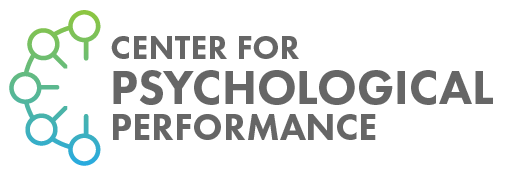Mental Mobility Blog
A Beginner’s Guide to Understanding ADHD
A beginner’s guide to understanding Attention-Deficit/Hyperactivity Disorder. Attention is the ability to focus our mental energy towards a specific stimulus while ignoring other environmental aspects that are not pertinent. Being in control of this focus allows you to be successful academically, professionally, and socially. So what do you do when it’s not so easy for you or your child to pay attention? Learn all about the three types of ADHD (predominantly hyper-active/impulsive, predominantly inattentive, and combined), how they appear, what challenges individuals may face, and how to overcome them to be successful in any venture.
Quieting the Mental Chatter
Sports have traditions. Chatter from the other team and from fans is one of them. But the reality is that this “chatter” that happens outside of the athlete rarely has much impact on their performance. Instead, it is the internal chatter, the thoughts that swirl around in an athlete’s head that lead to their downfall.
The internal chatter is one of the most common battles that I help athletes face. While the opposing team may have stopped all of the noise, that noise never ceases within the athlete’s mind. This internal chatter is a nuisance. It’s distracting, unhelpful, and takes up WAY too much room in your mind. Ready to break free and make that internal chatter fade away?
A Beginner’s Guide to Understanding Dyscalculia
Mathematics is a complicated and layered academic area that requires a child to grasp the basics before applying them to concepts and then build upon those concepts as they progress through school. Not only must a child build on the concepts, but there is an assumption that speed and efficiency are a direct result of one’s understanding of those fundamentals. Mathematics also requires strong spatial and reasoning skills. As a result, a child who struggles in math, may also have difficulty in other areas of life that require spatial awareness or reasoning. Examples include: understanding maps or directions; estimating distance, height, or weight; managing time or money; and using logic to solve problems.
In this blog, we will dive into understanding dyscalculia, a challenge in understanding numbers and mathematical constructs. This impairs children’s ability to apply even basic math concepts, impacting not only their academic success, but various general life skills.
Mental Toughness vs. Mental Mobility
Mental toughness is focused on outcomes. It’s about doing more of what you’ve already been doing, even though it didn’t work the first or second or third times. It’s outdated. Instead, aim for Mental Mobility. Mental Mobility focuses on developing the strength and flexibility so that you have options to overcome any obstacle that you face.
A Beginner’s Guide to Understanding Dysgraphia
Problems with writing can be the result of a myriad of different things. Children have to be capable developmentally, physically, and mentally. A student must learn how to hold a pencil and develop the fine motor skills to write fluidly. They must also understand how to form each individual letter before learning to connect those letters to make words and finally stringing words together to make sentences. After all of that, students must also master the grammar rules necessary to clearly communicate their thoughts in writing. As you can see, there are many areas that could prove challenging on a child’s journey of learning to write.
In this blog, we will dive into understanding dysgraphia, a unique difficulty with writing that impairs children’s ability to express themselves clearly through the written word.
A Beginner’s Guide to Understanding Dyslexia
Does your child…
Have difficulty reading books on grade level?
Rely on pictures to understand the story?
Perform inconsistently when reading common sight words?
Struggle with remembering and applying spelling rules?
Refuse or get frustrated when required to read for homework?
Guess at words when reading?
Have difficulty recognizing a word even when it was provided within the same sentence?
Read extremely slowly?
Struggle to connect letters to their appropriate sounds?
Show improved comprehension when stories are read to them?
If you said yes to any of these, your child may be one of the 5-10% of the population that have a learning disability known as dyslexia. Let’s learn more about dyslexia, identify the characteristics you may notice in your child, debunk common myths, discuss approaches to help your child succeed academically, and explore the benefits of having a dyslexic mind.







